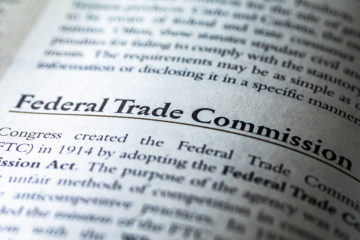The Market Institute Senior Fellow Norm Singleton has a new piece in Real Clear Markets looks at FTC Chair Lina Khan’s disregard for free speech despite her reverence for former Supreme Court Justice Louis Brandeis, who was a champion of free speech.
He writes:
“Federal Trade Commissioner Lina Khan and others who support a return to the “big is bad” era of antitrust enforcement have been labeled “Neo-Brandeisians” after progressive hero Supreme Court Justice Louis Brandeis. Unfortunately, while he clearly influenced Khan’s approach to antitrust enforcement, her views on the First Amendment are nowhere near those of Brandeis, who was a champion of free speech.
Khan’s disregard for free speech is demonstrated by the FTC’s “request for information” from social media company Twitter. The request centered on “The Twitter Files”, the recently released communications between Twitter employees and employees of various governmental agencies. These communications revealed what many have long suspected: government agents are violating the First Amendment by working to get American citizens censored on social media platforms.
One of the FTC’s requests is that Twitter “identify all journalists and other members of the media” to whom Twitter communicated since Elon Musk assumed control of the company. The request even mentions specific journalists, including “Bari Weiss, Matt Taibbi, Michael Shallenberger, [and] Abigail Shrier.” These journalists’ communications with Elon Musk included him giving them access to the Twitter Files. This suggested the real point of the FTC’s information request is to intimidate journalists from reporting stories embarrassing to progressives and Democrats—or else subject themselves to government harassment.
The FTC’s information request was justified as part of their ongoing enforcement of a 2011 consent agreement regarding Twitter’s protection of their users’ personal data. This seems odd since there was no evidence the release of the Twitter Files compromised Twitter users’ personal data. However, it is possible that users’ privacy may have been compromised when Twitter caved to government pressure to “moderate” (suppress) stories and opinions offensive to government officials.
One need not take Lina Khan’s “holistic “ approach to antitrust to see how government working with social media companies to censor American citizens harms all social media consumers. Those silenced obviously suffer from being denied a platform for their views. Excessive content moderation can also harm users who are denied an alternative voice on important issues. These other users may share the perspective of the censored authority, and thus lose access to material they could use to convince others. Those potential converts also lose the opportunity to expose themselves to new ideas, some of which they may find appealing.
Defenders of government interference in private technology companies’ content moderation policies argue they’re trying to protect social media users from being exposed to misinformation, extremism and hate speech. There is certainly an argument that content moderation can enhance users’ social media experience. However, that does not mean it is proper for government to “help” the tech companies decide what American citizens can and cannot discuss on social media. It is just as improper for the government to start telling newspapers which op-eds and letters to the editor they can and cannot publish.”


